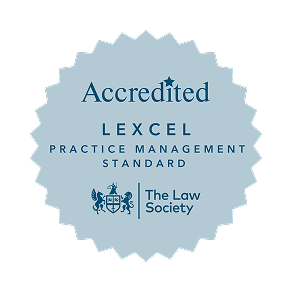We’re here to help. Simply leave your details and one of our friendly team members will give you a call at a time that suits you. You’ll be speaking directly with someone who’s ready to listen and guide you. Mullis & Peake will use the information you provide in this form in accordance with our privacy policy.
Promise or Gift Before Death
If you believe a gift or promise made before death was unfair, improper, or not genuinely intended, it may be possible to challenge it. Our Wills and Probate Team provides clear, sensitive advice to help you understand your options and decide what to do next.

Are you concerned about a promise or gift made before death?
Disputes over lifetime gifts or promises often arise where expectations were created, reliance followed, but the final outcome feels unjust. These cases are rarely straightforward and can involve questions of trust, family dynamics, and legal responsibility.
You may be worried that:
A relative was promised property or assets that were never reflected in the Will
Significant gifts were made shortly before death, raising concerns about pressure or influence
An attorney or family member handled finances inappropriately
You relied on a promise and shaped your life around it
Assets were transferred without full understanding or consent
Guidance on challenging promises or gifts made before death
A promise made during someone’s lifetime may still be enforceable even if it does not appear in their Will. This is most commonly addressed through a proprietary estoppel claim, which allows the court to intervene where it would be unfair for a promise to be withdrawn.
To succeed, it is usually necessary to show:
- A clear assurance or promise was made
- You reasonably relied on that promise
- You suffered detriment as a result
- It would be unconscionable for the promise to be ignored
These cases often arise in family property or farming arrangements, but can apply in a wide range of circumstances.
Lifetime gifts can also be challenged where the person who made them:
- Lacked mental capacity at the time
- Did not fully understand what they were giving away
- Was subjected to undue influence or coercion
- Was misled or deceived
Where concerns exist, the court will look closely at the circumstances surrounding the gift, including medical evidence, timing, and the relationship between the parties.
Concerns frequently arise where gifts were made by someone acting under a Lasting Power of Attorney. Attorneys are under strict duties and may only make limited gifts unless expressly authorised.
If an attorney:
- Made substantial gifts
- Transferred property
- Benefited themselves or others improperly
those actions may be challenged and reversed. Attorneys can be held personally accountable if they act outside their powers or breach their duties
Some disputes involve financial abuse rather than formal gifts. This may include:
- Being added to bank accounts
- Control over debit cards or finances
- Funds withdrawn or transferred without proper authority
These situations can be distressing and complex. Legal advice can help determine whether recovery is possible and what remedies may be available.
Why choose Mullis & Peake
Disputes involving promises or gifts before death require careful handling and a clear understanding of both the law and the personal context.
We act for claimants and estates, always with a focus on proportionality and clarity.
Our team offers:
Frequently asked questions
Disputes over promises or gifts made before death often arise where expectations were created but not formally recorded, or where concerns exist about fairness, pressure, or understanding. Our experienced contentious probate solicitors answer common questions about when such promises can be challenged, what evidence is needed, and how these sensitive disputes can be resolved clearly, proportionately, and with care.
Yes, in some circumstances. A proprietary estoppel claim may allow the court to enforce a promise made during a person’s lifetime, even if it does not appear in their Will, where fairness requires it.
Yes. Gifts may be challenged if the person lacked capacity, was unduly influenced, or if an attorney acted outside their authority. Each case depends on its facts.
Attorneys are limited in what gifts they can make. If they exceeded their authority, those transactions may be reversed and the attorney held accountable.
This may include witness evidence, financial records, medical notes, previous Wills, correspondence, or professional advice given at the time.
Time limits can apply, particularly where estates are being administered. Early advice is strongly recommended.
In many cases, yes. Negotiation or mediation may be appropriate and can reduce cost and emotional strain.
Get in touch with our Promise or Gift Before Death team
If you are worried about a promise or gift made before death, you do not have to face the situation alone. We can help you understand where you stand and what steps may be appropriate.
"*" indicates required fields







